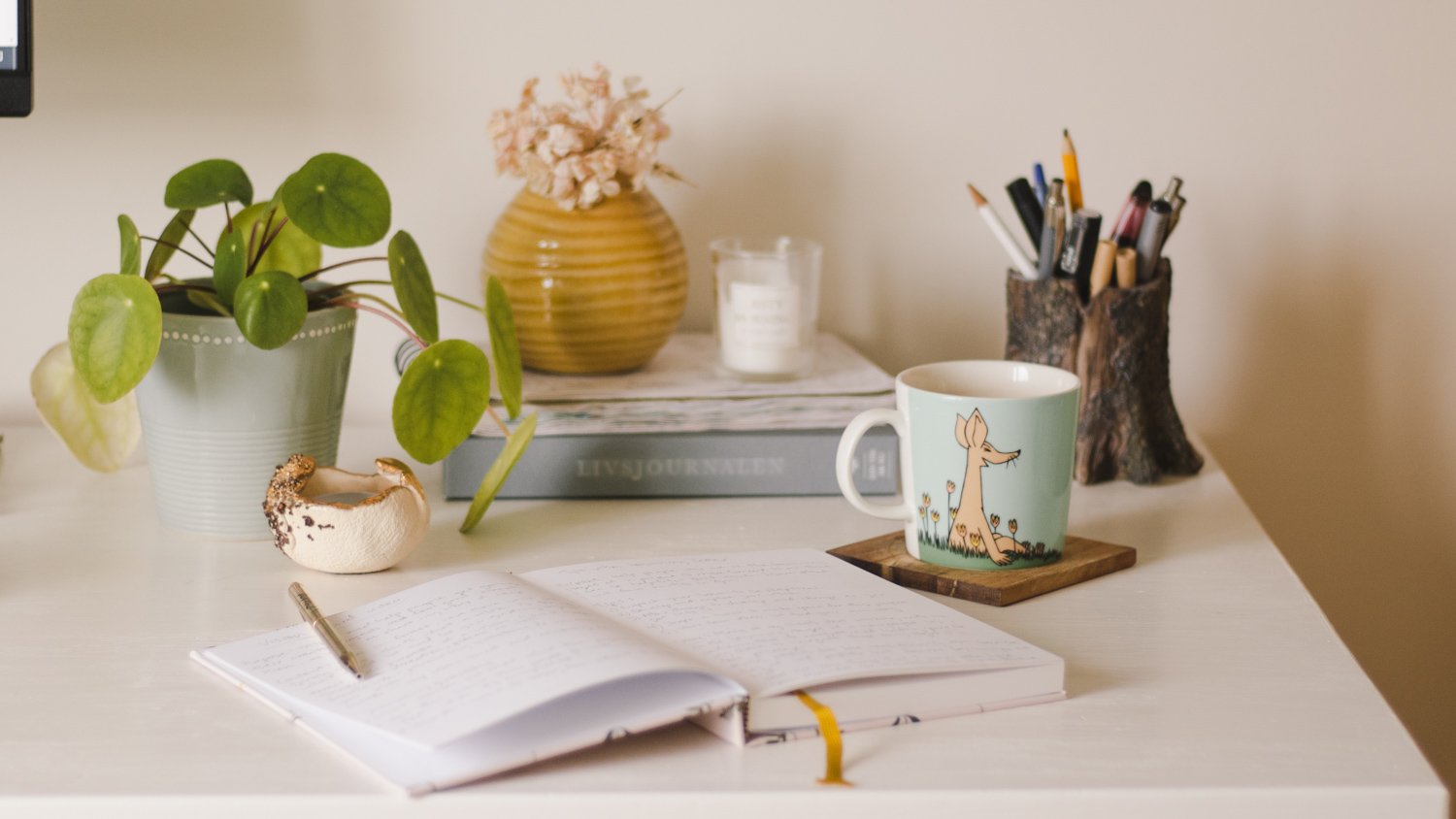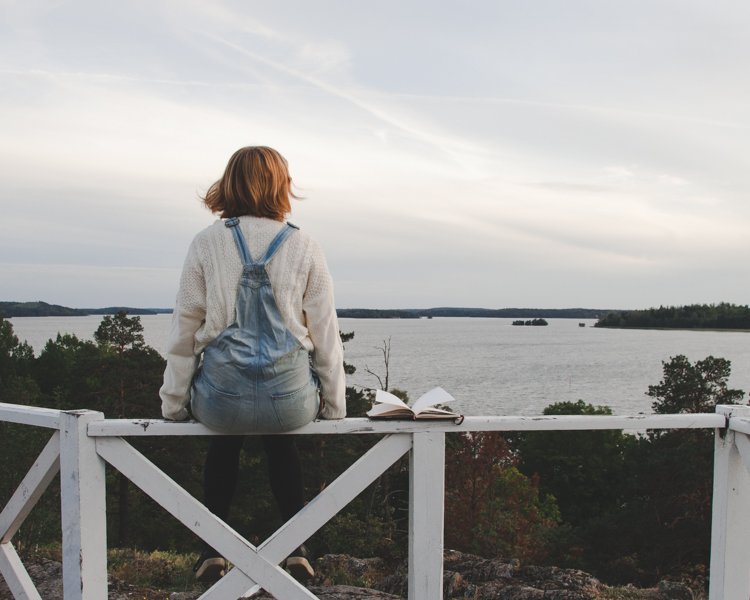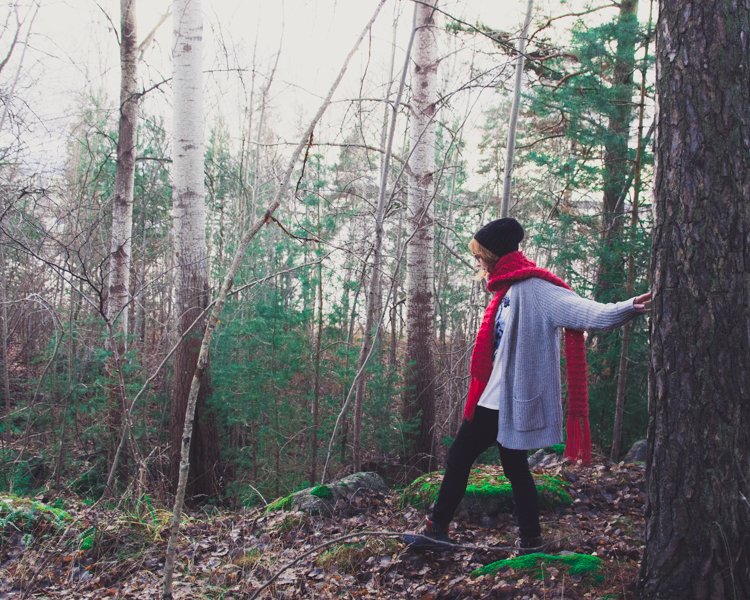
Welcome to the blog
This is my blog archive. My new writing lives on Substack.

How learning to trust my intuition has made me a better creative
Some time during my school years, I became someone who relied on logic.
I was just passing into adulthood when I first took the personality test MBTI. The test told me I was a sensor, not an intuitive, and in a way it was probably true. I had been fed the idea that you should not listen to your intuition or gut feeling. It wasn’t to be trusted. It wasn’t logic.
It has taken me a long time to even understand what my intuition is. I’ve been overthinking and second-guessing everything for so long, I had forgotten what it means to trust my intuition.

Slow living lessons from a tiny island in the Swedish archipelago
My childhood didn’t involve grand summer vacations in faraway land, no trips to see Europe’s big cities or old historical places. I was twelve before I went beyond the Nordic countries.
Instead, there were something else. A tiny island in the archipelago, bought by my grandfather when my mother was a kid. Too small to dig a well, but a simple house was built and electricity drawn out. No tv and, before smartphones and laptops, no internet.

Getting to work when you’re prone to get stuck pondering
If you make a rough generalization, you can divide people into two camps. You have those who are prone to say hang on, let’s think this through, and those who get’s impatient with the first camp and goes ahead anyway.
Let’s call them ponderers and explorers. You can find them divided up into different roles everywhere. The architects and the builders. The plotters and pantsers. The ones who like strategy games and the ones who like adventure games.
But we can’t always divide up in camps. When doing creative work on your own, you need to be able to wear both hats. And most likely, there’s one mode you’re more comfortable with.
Me, I’m a ponderer.

The lessons I learned from my “shopping ban”
Almost a year ago, I decided to stop buying online courses and workshops.
My fiance and I were looking at making a loss selling our apartment, due to a price drop on the housing market, and already having signed a contract to buy our new house at a fixed price. So we had to save all the money we could.
It’s not like I bought courses all the time, probably a couple a year, but enough to decide it wasn’t a priority until we’d moved.
That’s where my restrictions began, but as we got closer and closer to moving, they expanded to a shopping ban including clothes, books, eating out and pretty much all things that weren't essential.
It was a challenge, but it's one I'm grateful for because it taught me a lot.

Why the end of a project is so hard and what to do about it
I’m nearing the end of the third draft of my novel. It’s been big work, practically rewriting the whole thing, and I’ve been at it for over a year.
When I passed the mid point, I assumed the end would be like riding your bike downhill. Fast, thrilling and easy.
Little did I know it’d actually be quite the opposite - like the tiring and hard experience of riding your bike up a very long hill.

Four questions to help you begin each creative day intuitively
Every day is different. The way you feel, your energy and enthusiasm, your creative work and the challenges it entails. It's all constantly changing.
As a natural planner, this element of uncertainty is something I've always struggled to make room for in my plans, even when I've considered them flexible.
So lately, I've been doing something different. Instead of trying to control what I can't control, I've begun my creative days intuitively.

Why it’s so important to find your own version of doing the work
As creatives, there has always been someone who came before us. Someone who can tell us the right way of doing things, people to glance at as you set out to do your own creative work.
That is all and well, we need guidance when we’re learning. But if we follow others’ methods too closely, it can lead us astray, to something you might not like doing at all.

Ideas that scare the pants off of me and how I approach them
My creative life began in 2016 with a year long challenge: to face my creative fears. If you think that means I’m now fearless, I’ll have to disappoint you. But my fears have changed, and there are new things that scare me now.
In in the end of 2018 when I looked back on the year and set my intention for 2019, one thing stood out to me. There were again ideas I never got around to doing, and just like before it was because they scared me.

Dealing with the urge to overwork
Think of the stereotypical picture of a writer. Either he (because the stereotype is a he, right?) is walking around in agony, stuck in writers block, furiously procrastinating. Or he’s writing in a frenzy, in the claws of his muse, and all is well.
But is it?

My way of crafting goals that are unique to you and your journey
Never do we talk so much about goals as in the beginning of a new year. Resolutions, words of the year and complicated planning models circle around. For some it’s a thrilling time, for others it’s a painful, stressful or anxious period.
Are goals really necessary? No, but for most of us, they do help.

Treating lack of time, overwhelm and stress in your creative work by choosing less
We all seem to want more time.
Time to create, to pursue dreams, to build our ideas.
To live, to breathe and to slow down.
We fantasize about the things we’d be able to do and create if only we had another day in the week.
We try to squeeze in more activities than our lives can hold, trying to make it work and often ending up sacrificing those precious slow moments.

We need more slow in our creative lives
We live in a world that is obsessed with more and faster.
When I started to create regularly in 2016, I wanted to do it all. I wanted to stuff as many different creative projects into my life as possible. Quickly finish my first novel. Learn to paint and open an Etsy shop. Post on Instagram every day. Write one blog post and one email for my Teacup Owls every week. While working a 9-5 job.

Summer reads for the bookish creative
I love reading, always, but I especially love it in the summer. When I was a kid, summer vacation meant being at my family's summer house in the Swedish archipelago, with no TV and no internet. I vividly remember losing myself in a really good horse book series, especially in an intense scene where the protagonist was lost with her horse in a snow storm. When I looked up from my book, I was confused that it was actually summer.
So I thought I'd take the opportunity to share some reading tips with you.

What not to do when writing your first novel
When I set out to write the first draft of my first novel, I did almost everything wrong. I set the demands on myself sky high while not believing in my abilities as a writer for a second, constantly throwing myself into writing blocks.
I didn't develop my characters or my plot enough. I tried to wing it, ending up with a first draft that had to be completely rewritten.
The good things is, I've learned so much from my mistakes, and now I can share those lessons with you, so you might get a better start in your journey as a writer.

Balancing a day job with a creative life on the side doesn't have to be stressful
Working a full-time day job and being a spare time creative can feel like you’re trying to fight time while stress wants to be your closest friend. But it doesn't have to be like that.
It can be a happy, balanced and meaningful way to live your life.
Over the past two years, I've run this blog, photographed for my Instagram and worked on my novel, along with lots of other projects, all while having a regular office job. And today, I'd like to share the most important things I've learned about keeping stress away.

The most important engagement is your own
Our quest as creatives is to make things that didn't exist before. And most of us aren't satisfied with just bringing something new into the world, we try to to make those creations interesting too. Things that make people stop and look and smile (or cry).
I think we can all agree that it's not entirely easy.

What the first two drafts of my novel taught me about writing
When I started writing the first draft of my novel way too many years ago, I was writing a very different story. At its core it's the same, or at least similar, but almost everything else has changed in some way.
This is the first book I attempt to write. I could have been frustrated by the amount of work it has taken me to get to where I am today, writing draft three, but I've learned so much from all those mistakes I've made.
This novel has been a ruthless but fantastic writing teacher. Today, I'd like to share some of what those first and second drafts taught me.

Braving the next step of your creative journey
At its worst, January is a month that starts out with the panicky feeling that another year has passed and your creative dreams are still just that, dreams. It then continues on with too steep goals and a furious mantra of hustle. And then the months ends in burnout and a sense of hopelessness.
But at its best, January is simply a time for introspection and realigning your daily life with your long term goals.
When we do it right, the start of a new year can allow us to see the next step in our creative journey, and to actually take it.

A creative winter retreat
I love December. The traditions surrounding Christmas are lovely, but even more than the holiday itself, I love the days after, when the big celebration is over. In those days between the holiday rush and the energy of beginning a new year, there's a little gap I like to spend in retreat from the world.
I hide out at home with great leftovers of food, candy and cookies, I take walks in the snow if there is any, I sniff our Christmas tree and sink deep into my books. And I create.

Does your priorities match your dreams?
Our creative dreams are often deeply important to us, creative longings of the heart that just won't leave us alone. They are the things formed out of love for a craft and from who we want to be and what life we want to live.
And yet, dreams can be hard to work on. Hard to prioritize in a life filled with other things you want and must do, things with a shorter time frame and a closer connection to your everyday life.
Dreams can go unrealized because they are so big and your weeks only have so many hours. So how do we do it? How do we match the priorities of our day to day life with our big and scary dreams?
